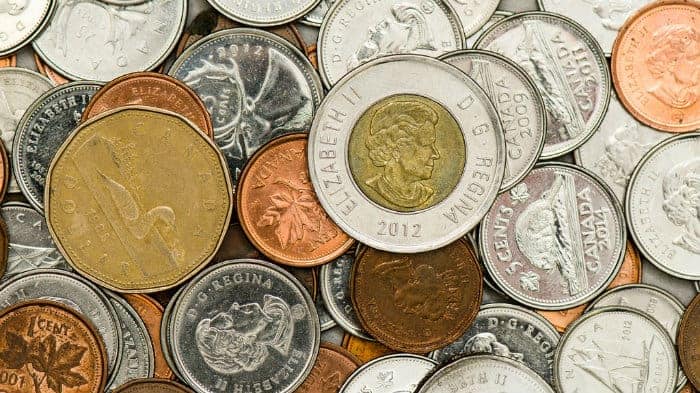Quality companies play an important role in a portfolio’s success. However, it doesn’t mean the value of your portfolio won’t go up and down, as we’ll see with the following example.
What is quality?
Quality companies have strong balance sheets with high credit ratings. For example, Toronto-Dominion Bank (TSX:TD)(NYSE:TD) has a high S&P credit rating of AA-.
Not only that, but the bank is a needed service in all kinds of economic environments. No matter if the economy is doing well or not, Toronto-Dominion Bank remains profitable.
During the financial crisis, Toronto-Dominion Bank’s earnings per share (EPS) fell 15% to $2.44 in the fiscal year 2008, but the bank’s dividend was still covered well with a payout ratio of 48.3% at the time.
It’s true the shares fell 50% from a high of $38 per share in 2007 to $19 per share in 2009 based on a split-adjusted price. However, Toronto-Dominion Bank’s EPS already started recovering in the fiscal year 2009 by rising 10%. By 2010, its EPS caught up to the pre-crisis level.
From 2010 to 2015, the bank’s EPS increased by 59.5% at an annualized rate of 9.8%. In the same period the bank hiked its dividend by 63.9% at an annualized rate of 10.4%. And its payout ratio is only expected to be about 47% this fiscal year.
So, Toronto-Dominion Bank has been healthily increasing its dividend because its earnings have been keeping up.
Buying quality when it’s discounted
In the last decade or so, Toronto-Dominion Bank has normally traded at a multiple of 12.2. So, any time it trades below that multiple it is discounted.
In fact, during the financial crisis in 2008, it fell to as low as a multiple of 7.4 and below $19 per share. If investors had bought $10,000 worth of shares then, it would have grown to $36,000 by now, inclusive of capital appreciation and dividends received. That’s a 260% rate of return equating to an annualized return of 19.2%.
But get this. Even if you had invested $10,000 at $36 per share in August 2010, a multiple of 12.6, which is considered fairly valued, your rate of return would have been 81.5%, equating to an annualized return of 10.8%. Your investment would have grown to almost $18,150.
In either case, the bank beat the market in total returns and income received.
At $56 per share, Toronto-Dominion Bank trades at roughly a multiple of 11.9 and is fairly valued.
Conclusion
By buying quality companies when they are discounted or fairly priced, investors should get market-beating returns and potentially higher income if the holdings pay decent, growing yields of roughly 4%.
By holding a portfolio of quality dividend companies, over time investors should enjoy higher returns and higher income with lower risk.









